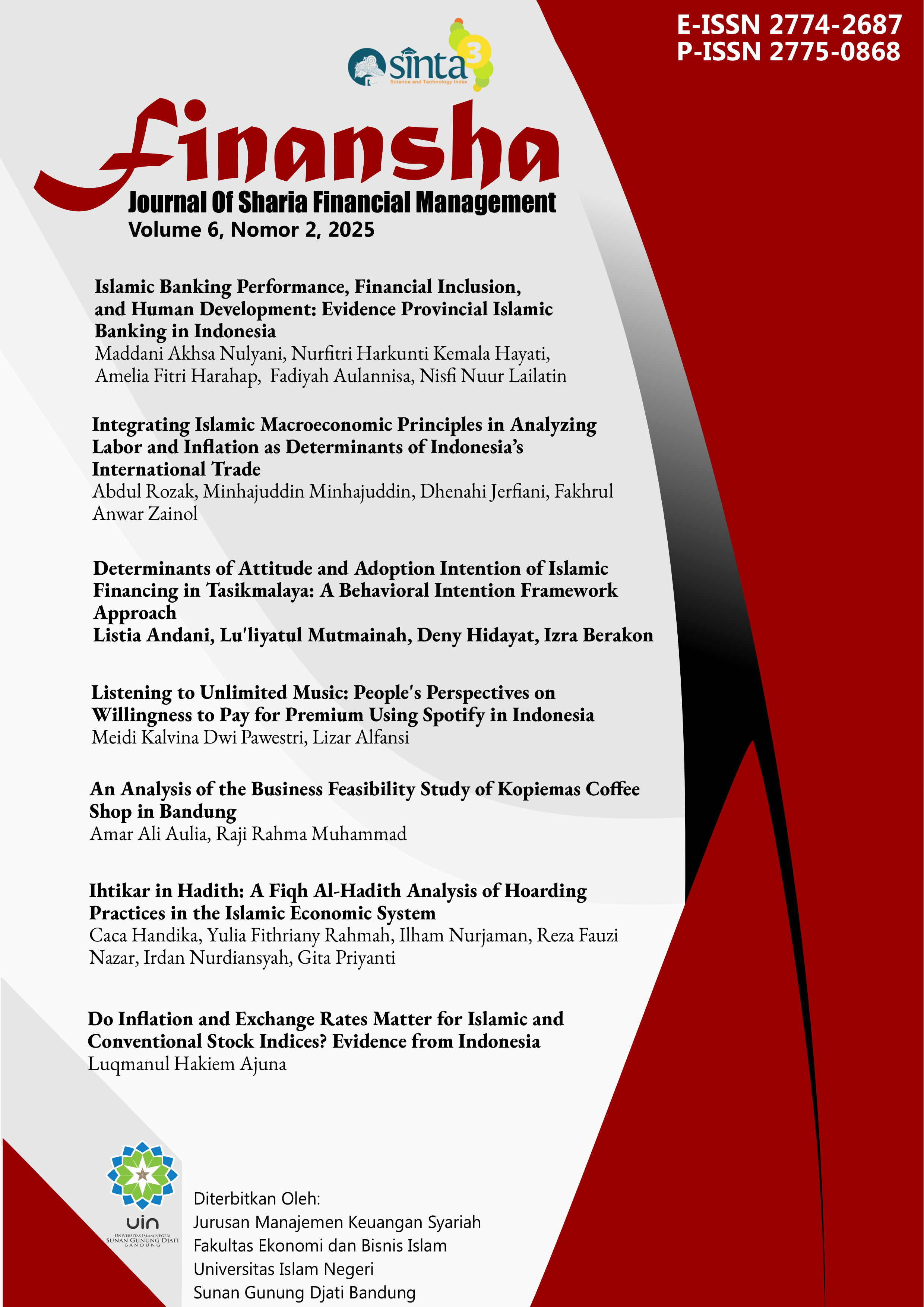About the Journal
Finansha: Journal of Sharia Financial Management is a peer-reviewed scientific journal published biannually (June and December) by the Sharia Financial Management Study Program, Faculty of Islamic Economics and Business, UIN Sunan Gunung Djati Bandung, in collaboration with the Association of Sharia Financial Management Study Programs (Asprodi MKS). The journal focuses on developing innovative theories, concepts, and methodologies in the field of Sharia financial management.
This journal serves as a platform for researchers, academics, and practitioners to discuss issues in Islamic Economics, Finance, Banking, Accounting, and other related disciplines. It also aims to bridge the gap between theory and practice and contribute to solving social problems.
Scope (but not limited to): Sharia Financial Management, Economics, Management, Accounting, Islamic Banking and Capital Markets, Zakat and Waqf, Takaful, Islamic Business Ethics, and Sharia Risk Management.
Accreditation: SINTA 3
Effective: Volume 5 Issue 1 (2024) – Volume 9 Issue 2 (2028)
E-ISSN: 2774-2687
P-ISSN: 2775-0868

















